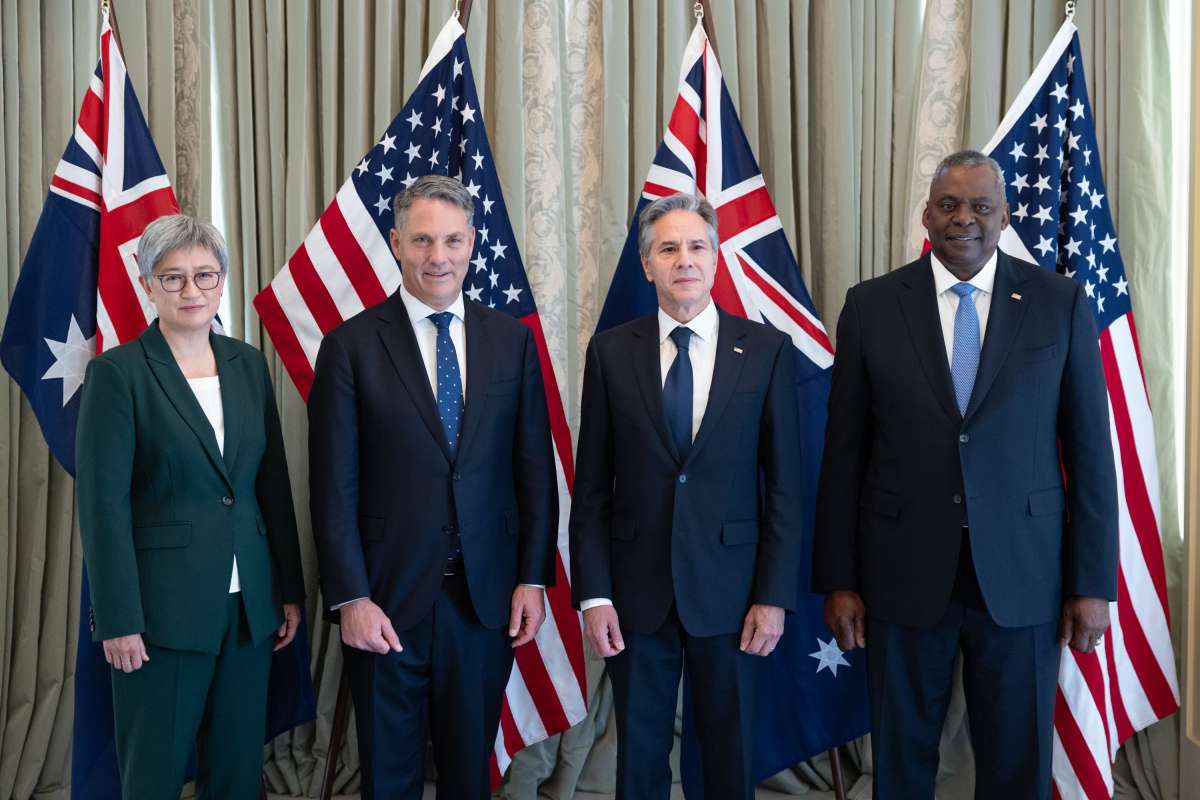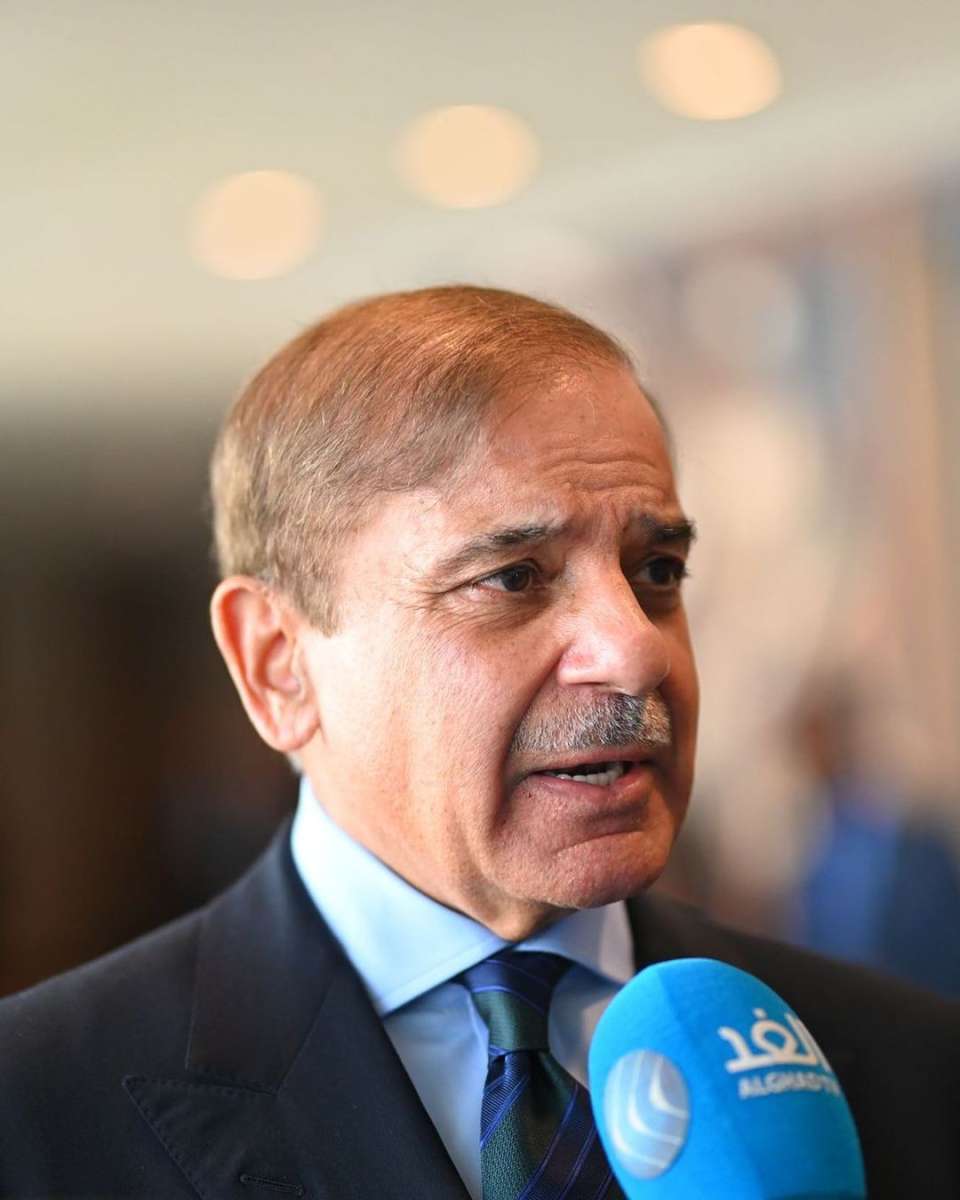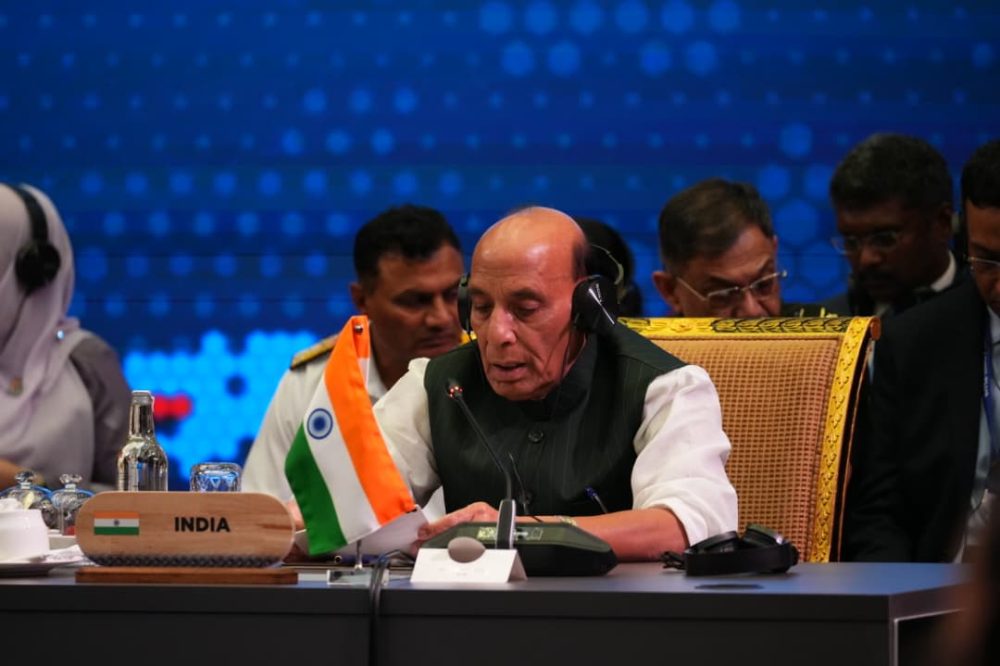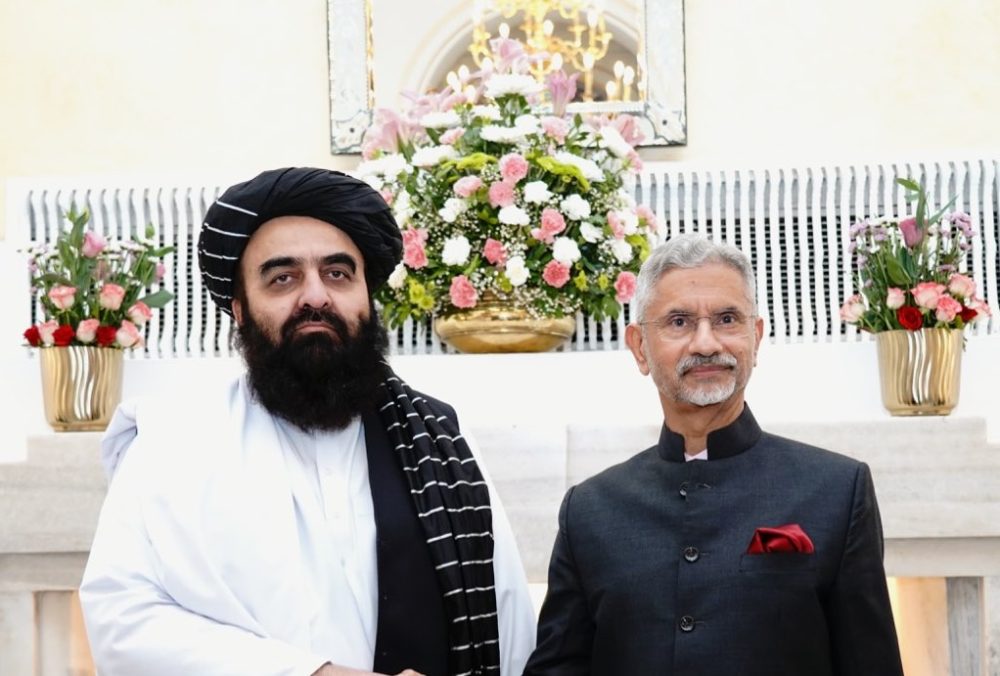Australia and US reaffirmed their commitment to transparency and urged others to take a similar approach to their capability development….reports Asian Lite News
US and Australia on Saturday agreed to further cooperate with India, Japan, Indonesia, the Philippines and Korea to ensure the security and stability of the Indo-Pacific at the 33rd Australia-US Ministerial Consultations (AUSMIN).
Officials from the two countries on Saturday met in Brisbane. The US delegation was led by Secretary of Defense, Lloyd J Austin, and Secretary of State, Antony Blinken. The Australian delegation included Deputy Prime Minister Richard Marles and Minister of Foreign Affairs and Trade Penny Wong. During the meeting, the two countries reaffirmed their commitment to enhancing interoperability with the militaries of the Pacific through a range of exercises.
They welcomed Fiji, Indonesia, Papua New Guinea, and Tonga’s participation in Exercise TALISMAN SABRE 2023 for the first time, as well as India, Singapore, Thailand, and the Philippines as inaugural observers, according to a fact sheet released by the US Department of Defence.
The two countries welcomed progress under the AUKUS partnership (the trilateral security pact between Australia, the United Kingdom, and the United States) toward the Australian acquisition of a conventionally armed, nuclear-powered submarine capability and the development of advanced capabilities to safeguard stability and security in the Indo-Pacific.
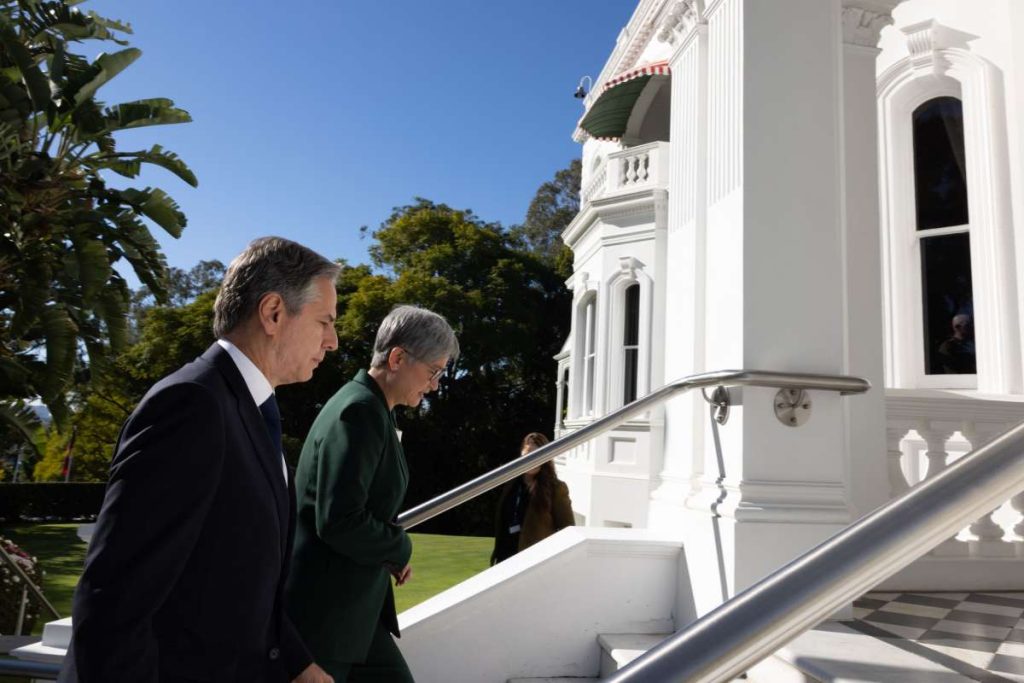
Australia will initially buy three Virginia-class nuclear-powered attack submarines (known by the common naval acronym SSN) from the USA. These are likely to be second-hand boats from the US Navy (USN), plus there is an option for obtaining two more Virginia-class submarines should plans to build a new class of SSN-AUKUS boats be delayed.
The SSN-AUKUS submarine will be largely based on a British SSN design, but with the incorporation of some American technology. Both the UK and Australia will obtain SSN-AUKUS boats, with British production kicking off slightly earlier than in Australia, which is a total novice at such sophisticated shipbuilding. The whole intent is for Canberra to be able to build and maintain a fleet of SSNs as a sovereign capability, but with support from the UK and USA.
Australia will become the seventh country in the world to operate nuclear-powered submarines. Of course, it should be pointed out once again that these Australian SSNs are not capable of carrying ballistic missiles armed with nuclear warheads. They are not ballistic missile submarines (SSBN), which only a very exclusive club of nations operate.
Moreover, Australia and US reaffirmed their commitment to transparency and urged others to take a similar approach to their capability development.
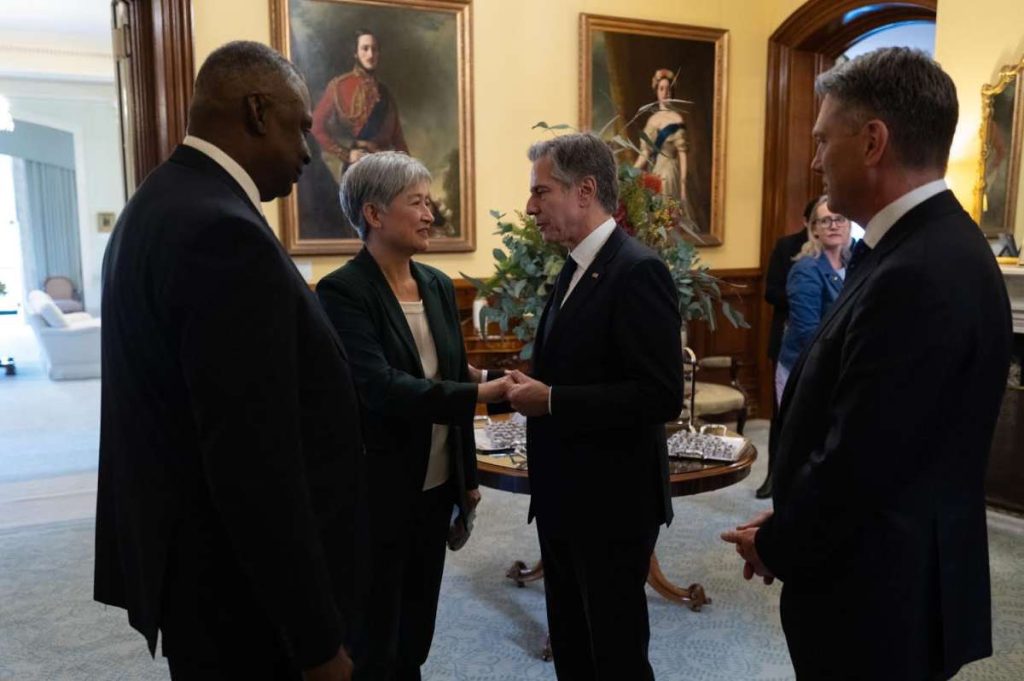
During the 33rd Australia-US Ministerial Consultations, the two countries planned the deployment of a USCG Cutter to the Pacific in early 2024 to further maritime domain awareness and training in the region to address maritime security priorities including illegal, unreported, and unregulated (IUU) fishing.
The two determined that the unbreakable alliance between the United States and Australia has never been stronger and that the alliance remains a partnership of strategic interest rooted in common values and a common determination to preserve stability, prosperity, and peace.
Against the backdrop of historic momentum for the alliance, the United States and Australia committed to advance a number of key lines of shared effort, according to the US fact sheet titled ‘Secretary Austin’s Eighth Trip to the Indo-Pacific Region.’
This includes reaffirming respect for each other’s sovereignty and their commitment to operationalize the Alliance, the United States and Australia advanced key priorities across an ambitious range of force posture cooperation efforts, including conducting more regular and longer expeditionary visits of US submarines to Australia starting this year.
The two reaffirmed the importance of maximizing the strategic and technological advantage of the Alliance in an age of heightened strategic competition. They advanced a number of key priorities to strengthen their advanced capabilities and the health of their defence industrial bases.
They committed to collaborating on critical technologies and innovation to ensure the Alliance’s asymmetrical capability edge and to explore opportunities for regional co-development, co-production, and co-sustainment aligned to agreed capability priorities.
The two countries also agree to uphold a global order based on international law, including the fundamental principles of sovereignty and territorial integrity. They advanced a number of key priorities to strengthen their mutual alliances, partnerships, and trilateral and multilateral security arrangements, according to the fact sheet. (ANI)


